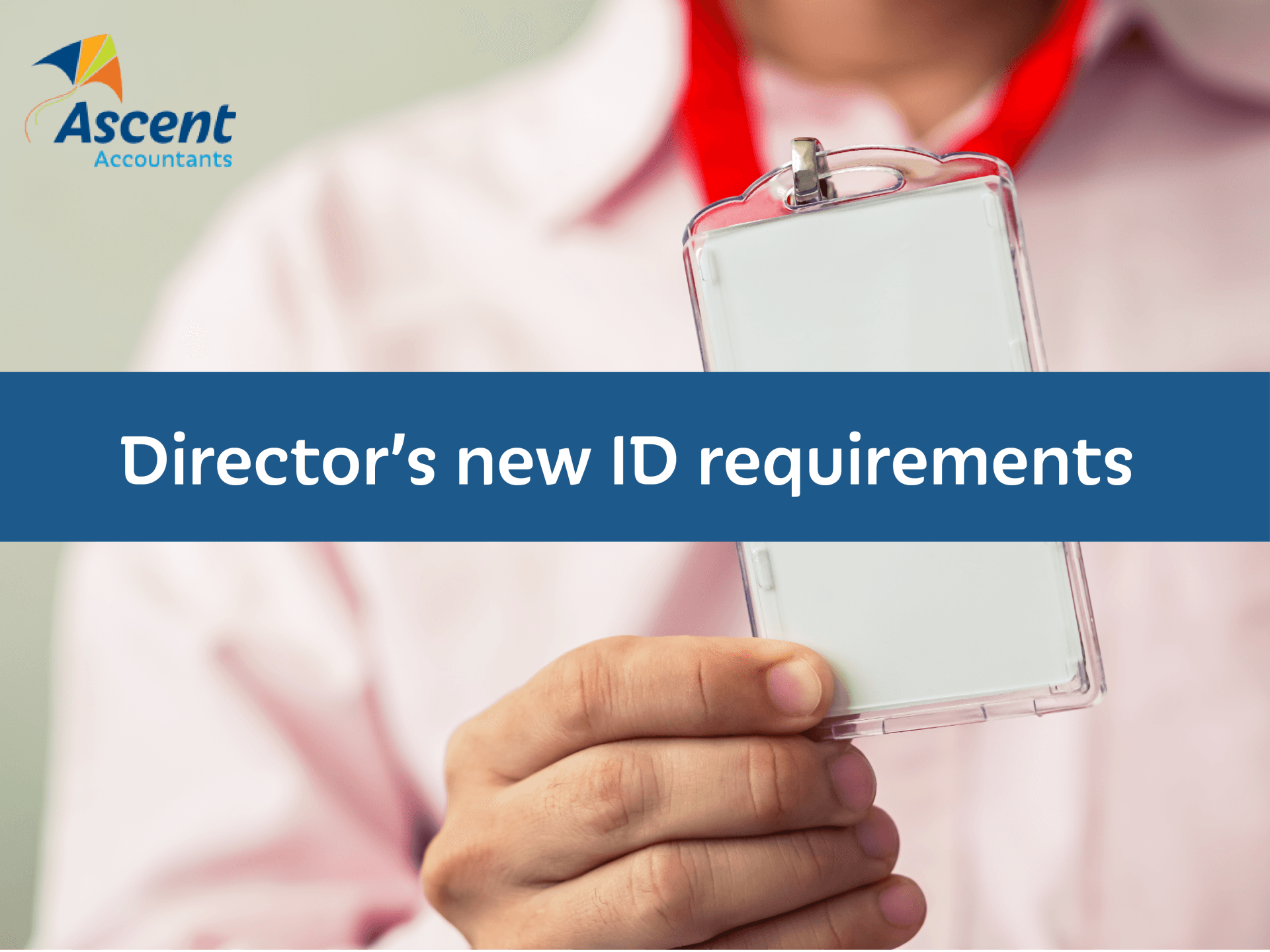Director’s new ID requirements

What’s the DIN for?
Good question. The DIN has been introduced for three main reasons.
- Prevent the use of false of fraudulent Director identities.
- Make it easier for external administrators and regulators to trace Directors’ relationships with companies over time.
- Identify and eliminate Director involvement in unlawful activities, such as illegal phoenixing activities.
As a Director, you only need to apply for a DIN once. Then, it’s yours forever — even if you change your name, Directorship, move overseas, or step away from a Director position entirely.
Write these dates down…
The DIN registration process is open as of 1st November 2021. Significant penalties apply for failing to obtain, misuse or falsifying a DIN. However, you have until 30th November 2022 to register. That’s 12 months, so you can breathe a little sigh of relief (just don’t forget to do it before that date).
If you appoint new company Directors between now and the 4th April 2022, you’ll need to register within 28 days of your appointment, but after 5th April 2022, you must apply before your appointment as a Director. We strongly recommend that you obtain your Director ID before being added as a director, to avoid penalties.
Start now
If you don’t want to write any dates down, you can get started right now.
Simply apply online through the Australian Business Registry Services website. You’ll need to sign in with your myGovID and prove who you are with some Australian identity documents. You’ll also need to answer some questions about your Australian Taxation Office records, which could include details about your PAYG payment summary, bank account, superannuation, and so on.
Once you get onto the Australian Business Registry Services website, you’ll be walked through the process step-by-step.
Need a hand?
We might be able to help. If Ascent Accountants is currently the registered office for your company, we’ll be in touch with you personally to discuss your DIN registration. If Ascent is not currently your registered office, it’s your responsibility to obtain the DIN. ASIC will be updated when you receive your DIN. Unfortunately, as much as we’d love to assist you, we cannot obtain or updated this at ASIC for you if we are not the registered office.
Need help with your accounting?








